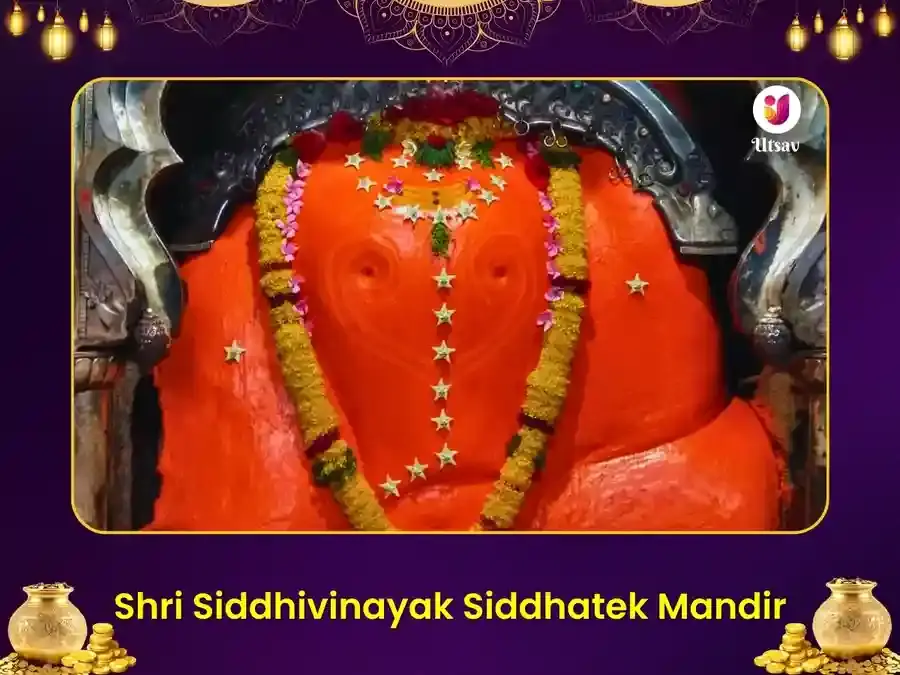Why is Tulsi not offered to Lord Ganesha?
Fri - Jun 28, 2024
6 min read
Share
Lord Ganesha is the first and most important god to be worshipped at the start of every ceremony. Lord Ganesha is revered as one of the most splendid and auspicious presences in Hindu culture, and his blessings are sought via a range of offerings that this lovely God enjoys. However, there are no tulsi or basil leaves in such offerings. This is strange, given the sacredness and importance that we place on tulsi plants in our faith. Tulsi, often known as holy basil, is one of Hinduism's most sacred herbs. It is commonly used in pujas and religious rituals and is thought to possess several cleansing and therapeutic effects. However, there is one god to whom tulsi is never presented.
However, tulsi is never presented to Lord Ganesha. According to a 2019 poll, 90% of Hindus in India are prohibited from offering tulsi to Ganesha. This practice is so pervasive that it is described in Hinduism's most sacred book, the Shiv Purana. In this post, we will look at the origins and reasons behind this custom.
Table of Contents
1. The Historical Value of Tulsi in Hindu Religion
2. The Significance of Lord Ganesha in Hindu Religion
3. Various beliefs behind this custom
4. Modern beliefs of not offering Tulsi to Lord Ganesha
5. What was the perspective of today’s generation on this custom?

The Historical Value of Tulsi in Hindu Religion
The Tulsi plant, formally known as Ocimum tenuiflorum but often known as holy basil, has a unique position in Hinduism. It is regarded as more than simply a plant; it is a manifestation of the goddess Lakshmi, Lord Vishnu's consort. The tulsi plant is revered and worshipped with great devotion.
Tulsi is thought to have purifying abilities, capable of expelling negativity and promoting spiritual development. Its leaves are used in ceremonies and rituals, and they can even be ingested as tea or food for their therapeutic properties. Tulsi's origin stories are many, but one moving account has her as a princess who was cursed by a sage and converted into a basil plant. However, Lord Vishnu saw her undying devotion and invited her to be his partner. Tulsi, which is commonly cultivated in Hindu courtyards, is believed to protect the home from bad influences and attract good fortune. Its relevance extends to marriage and reproduction.
Tulsi's holiness has persisted through generations in Hindu tradition. It represents purity, tenderness, and a deep link of loyalty.
The Significance of Lord Ganesha in Hindu Religion
Lord Ganesha, the modak-loving God, is a well-known and respected Hindu deity. He represents wisdom, intelligence, and achievement, as well as the ability to overcome challenges. Lord Ganesha is a prominent figure among Hindu deities. He's the charming and attractive elephant-headed God who wipes away problems and bestows wisdom, intelligence, and success. He has a beautiful potbelly and rides on a mouse.
Lord Ganesha, the son of Lord Shiva and Goddess Parvati, has risen to prominence. He's the first person people turn to when they need help overcoming obstacles and achieving success. Students and businesspeople are especially interested in his blessings, believing he is the source of both intelligence and fortune. Consider him the divine cheerleader for all endeavours. His knowledge is sometimes shown with him holding a book or rosary. Furthermore, he is the go-to deity for anyone involved in the arts and crafts sector, with his small mouse companion accompanying him as a sign of his inventive abilities.
Various Beliefs behind this custom
1. This tradition's origins may be traced back to stories and historical events. One of them tells the story of Tulsi, a princess who was cursed to become a basil plant by a sage. However, her devotion impressed Lord Vishnu, who made her his companion. Another tale depicts Lord Ganesha and Tulsi falling in love. Tulsi's father, on the other hand, was adamantly opposed to Ganesha marrying. The scriptures also weigh in. According to the Padma Purana, Tulsi is Lakshmi, Vishnu's consort, hence offering her to another deity is considered rude. The theological and cultural reasons for this ritual are similarly complicated. Some argue that Tulsi is too clean and sacred to be presented to any god other than Lord Vishnu.
2. According to the Vedas, Lord Ganesh once performed penance on the banks of the Ganga river. Tulsi, on the other hand, went on a pilgrimage with the purpose of marrying. On her way, she spotted Lord Ganesh in a state of meditation, sitting on the throne and wearing a necklace of precious stones. Seeing Lord Ganesha. Tulsi was captivated by him and proposed marriage to him. As a result, Ganesha became distracted during his concentration. He instantly refused the marriage proposal, claiming that he is celibate.Tulsi was terribly heartbroken, and in her rage, she cursed Lord Ganesh that his marriage would go ahead against his wishes. Since Lord Ganesh had convinced himself to be celibate. Tulsi also disliked the fact and cursed him that he would now have to marry twice. When Lord Ganesha heard this, he became outraged and cursed Tulsi, claiming she would marry an Asura (demon). Tulsi was furious after hearing this curse. After a while, she realised her error and apologised to Ganesha. Lord Ganesha stated she will marry the demon Shankha Churna. After the curse is lifted, she will be considered very precious to Lord Krishna, and her significance in the Kaliyuga will be such that she will show mankind on Earth the route to salvation. But he insisted that no one would ever offer me Tulsi leaves, and that doing so would be terribly unlucky. This explains why Tulsi is not offered to Lord Ganesha.
Modern Beliefs of not offering Tulsi to Lord Ganesha
Many Hindus still do not give Tulsi to Lord Ganesha. However, recent perspectives on this practice vary greatly. Some Hindus feel the practice is still importatant today since it is rooted in old religious beliefs. They claim that gods should be honoured, and that presenting Tulsi to Ganesha is insulting to Vishnu. Others believe otherwise. They say that the previous story is no longer credible, and the practice appears unjust. Why should Tulsi be treated differently than other plants? Scholars have their say, too. Some argue that it is about protecting Tulsi's holiness, conserving it just for Vishnu.
Others regard it as a historical manner of keeping women under control, with the curse narrative serving as a metaphor for restricting women's freedom. In the middle of this, there is no one-size-fits-all solution. Some argue that this practice should be phased out because it does not reflect current ideals. They consider it unjust and out of sync with modern Hinduism. On the other hand, some people are steadfast in their commitment to tradition. They feel it honours ancient rituals and reminds us to respect both Tulsi and the gods.
What was the perspective of today’s generation on this custom?
In a world of constant change, certain things survive the test of time. The practice of not offering Tulsi to Lord Ganesha, based on ancient Hindu beliefs, offers a window into our history and a touchstone for understanding the complicated tapestry of tradition.
As we reflect on this practice, we see the deep layers of thought that have moulded Hindu practices. It serves as a reminder that past stories continue to speak to us and influence our actions today. By diving into the reasoning behind such activities, we unearth more than just rituals; we discover the essence of reverence and the dynamics of religion. In this day of shifting values, it is critical to investigate the origins of these traditions. It's a trip that connects the past and now, revealing that underlying these customs are stories of dedication, respect, and even reflections of cultural conventions.
Share
Offer Puja to Ganeshji
🪔
Puja for Wealth, Business Growth & Intelligence
Sri Siddhi Vinayak Sarva Karya Dhan Samriddhi Puja
Siddhivinayak Temple, Ahilyanagar
Wed - Sep 10, 2025 - Budhvar Visesh
1.0k+ Devotees